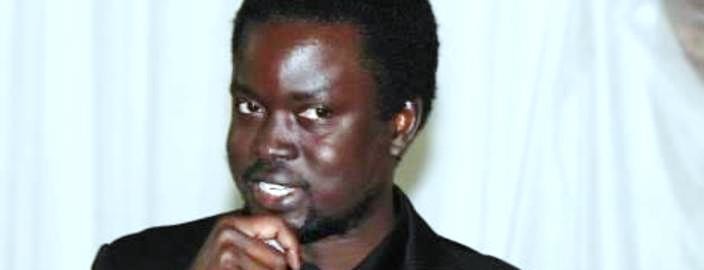South Sudanese ministers need to wake up. Seriously! Their timidity has destroyed the country. Treating President Kiir like a scary, unquestionable monster is a disservice to President Kiir himself and the people of South Sudan, especially the youth. Their future is being mortgaged. We should not conflate fearing the president with respect.
South Sudanese ministers either do not know about intra and inter-ministerial protocols, or they simply do not care about them. What the minister of cabinet affairs, Dr. Martin Elia Lomuro, said recently during a parliamentary summon on June 6, 2024, typifies this.
“If the present decides and direct payments as an executive head,” he said, “do I have the power…to change? I don’t have.” Of course he has.
Lomuro seems to assume that the president is above the law. The president is not supposed to be obeyed just because he is president. That would be an acknowledgement of authoritarianism. President Kiir should only be obeyed if his directives adhere strictly to national laws and procurement protocols within and between various ministries and departments.
The failure to adhere strictly to procurement protocols may be the reason why South Sudanese go for months without being paid. When will the ministers start to prioritize adherence to protocols over personality cult and elitist politico-economic cabals? Is the South Sudanese cabinet a cartel? This is the threat to human rights and social justice in South Sudan.
It is now nearly a decade and a half since South Sudan became independent, but these simple institutional protocols are not being adhered to. Who is to blame here? That “we are still a young country” is a scapegoat that has escaped into the sovereignty forest. It is time for service provision.
That the president is the head of the executive branch of government means absolutely nothing if he breaks protocols. This is where the ministers have the authority. President Kiir cannot, and I repeat, cannot, order a minister to violate the law or break protocols if the president has decided to re-direct payments to shady “special projects?” A minister can say “no” to the president if the law does not allow the president to order the minister. The president supervises the cabinet, but he does not, and should not, run the ministries. He has no authority to re-direct funds away from their allocated ministries unless the cabinet agrees as a collective.
President Kiir is not a monarch. He is a president of a republic. At least I want to believe that. And the sooner ministers start to tell him, “No, Mr. President, that is against protocol and the constitution” the better things will improve for South Sudanese civilians. And this can only be done by the ministers. They have the authority to defy the president within the law and protocol.
But I am afraid Dr. Lumoro’s response to parliament is reenforcing what some of us have been saying for decades: President Kiir is South Sudan and South Sudan is President Kiir. That is tragic. Lomuro’s doubling-down a few days later, that he was taken out of context, makes the president even appear more monstrous. He retracted the truth he told parliament because he is afraid. Is President Kiir this scary?
What Dr. Lomuro should have added during his response to the parliamentary committee are the procurement protocols that, if they exist, allow the president to “direct payments.” The president does not have his own laws from which he draws to re-direct payments for “special projects.” “Special projects” like the one that directed 10 million away from peace implementation to the office of the president are cliched political euphemisms for corrupt practices.
But I know that South Sudan is not a democracy. Almost everyone, tragically, serves at the mercy of the president. The president has become the employer-in-chief. This is a threat to national security, democratization, and the economic prosperity of South Sudan.
It is obvious that telling the President of South Sudan he is wrong may lead to an official being decreed-out of office, or even worse. I am not oblivious. This has been the case even when the official is right. But change must begin somewhere. Dr. Lumoro either does not know he has the authority, a state of affair that would be tragic, or he is just afraid of the president. No one wants to bell the cat.
Yes, Dr. Lumoro has the power. His power are the law and institutional protocols because South Sudan is not France of Louis XVI or England of Henry VIII. Or is it? He can say “no” and take exculpatory refuge in the law and procurement protocols. Otherwise, he is telling us President Kiir is an autocrat who cannot be questioned. Is this what the good minister is telling us without telling us?
It may be time to start showing the president how to follow the law and respect institutional protocols. He supervises the ministries; he does not run them. Saying “no” to President Kiir is a show of respect and the integrity of the administrations he leads. This is what the youth of South Sudan expect from you.
Dr. Kuir ë Garang (PhD) is a political commentator and a researcher at York University, Toronto, Canada. His peer-reviewed works have been published in Social Epistemology: A Journal of Knowledge, Culture, and Policy, Journal of Progressive Human Services, Radical and Critical Social Work, Modern Africa: Politics, History and Society, among others. Twitter/X handle: @kuirthiy; email: kuirthiy@yahoo.com
The views expressed in ‘opinion’ articles published by Radio Tamazuj are solely those of the writer. The veracity of any claims made is the responsibility of the author, not Radio Tamazuj.




